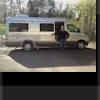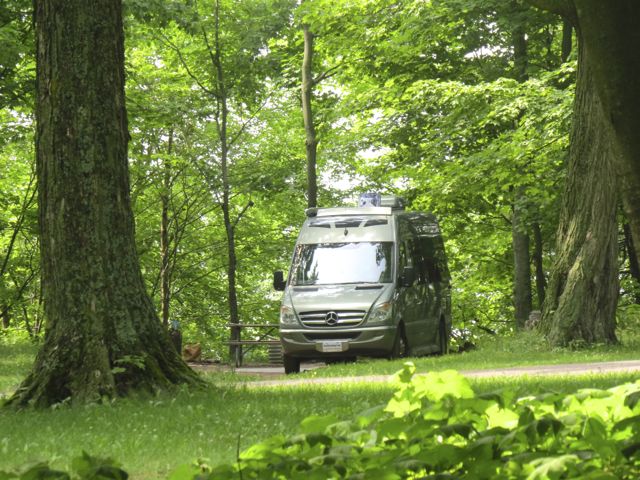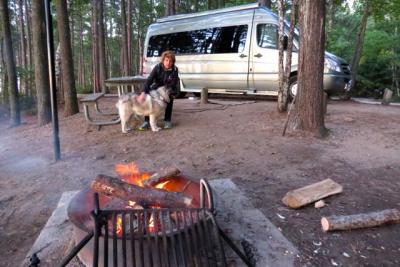Apps and Websites to Help You Find the Perfect Boondocking Spot
There really is a sound to it, you know. On a boondocking trip deep in the Michigan woods in Ogemaw County, we heard it good.
There was the crackle of our campfire. A hoot of a distant owl. The yips of a pack of coyotes somewhere far to the west. The gurgle of the Rifle River moving over a stretch of rocks just downstream from where we were camped. The whooshing sound of wind whipping through a stand of pine.
And on that clear night, the sound of boondocking silence comes with a view.
Up above, as soon as you walked away from the fire and got your night eyes focused, a gazillion stars speckled the ink black sky.
That’s the first big perk of boondocking, or being totally self-contained with no commercial power or water or sewer or any other service. Some people prefer to call it “dry camping” or “independent camping.” Other terms are “primitive camping” or “dispersed camping.”
Whatever, we were loving it.
No one else was around. Probably for miles.
Tai, our Norwegian Elkhoud, ran free, though not very far from our motorhome. I swear he smiled the whole weekend, blissfully exhausted from leash-free hikes and the new scents of deer trails and the deep woods.
We slept with the blinds up and the windows open with complete privacy.
In our all electric Roadtrek eTrek, with solar power and a diesel heater connected to the engine, we can go that way for days. In fact, the limiting factor for us out there is how much food we can bring. More often than not, we need to resupply about every three days. Because we have eight house batteries, 250 watts of solar power, a diesel generator that charges the batteries on a half hour or so by just running the engine, a refrigerator, heater, microwave/convection oven, air conditioner and inductive stove that are powered by a 5,000-watt inverter, our eTrek is made for boondocking like that.
But most all Class B motorhomes can boondock, some for a night or so, others a couple days.
But where?
I use the Internet and apps to help me find new places to boondock.
For starters, check out the app for iPhone, iPad and Android devices by AllStays (www.allstays.com). They list more than 22,000 commercial campgrounds, state and national parks and boondocking spots, everything from KOAs and Walmarts to state and federal forests, military and BLM land. This is my favorite app and website, offering the most detailed information of any app I’ve yet found on places to stay.
There are other resources.
Free Campgrounds for RVs (http://www.freecampgrounds.com) has a big database, sorted by state, of state, federal and county land open to camping, most without hookups or services.
For boondocking and camping information about National Forests, check out the very useful U.S. National Forest Campground Guide (http://www.forestcamping.com). Much of the research was done by Fred and Suzi Dow, a couple of avid RVers who have spent the last 17 years visiting 155 national forests, 20 national grasslands, 1 national tallgrass prairie and 2,383 developed campgrounds.
I also like the Free Campsites website (http://freecampsites.net). There’s an interactive map as well as comments and reviews of boondocking spots.
You can also check the site http://boondocking.org. It’s a database of free boondocking spots based on GPS coordinates. Enter in your location’s latitude and longitude and it will tell you whether the closest boondocking spot may be.
Those are some of my favorite boondocking resources. How about you? Share your suggestions under comments.
Boondocking in our eTrek the middle of the Michigan woods in Ogemaw County.





1 Comment
Recommended Comments
Please sign in to comment
You will be able to leave a comment after signing in
Sign In Now